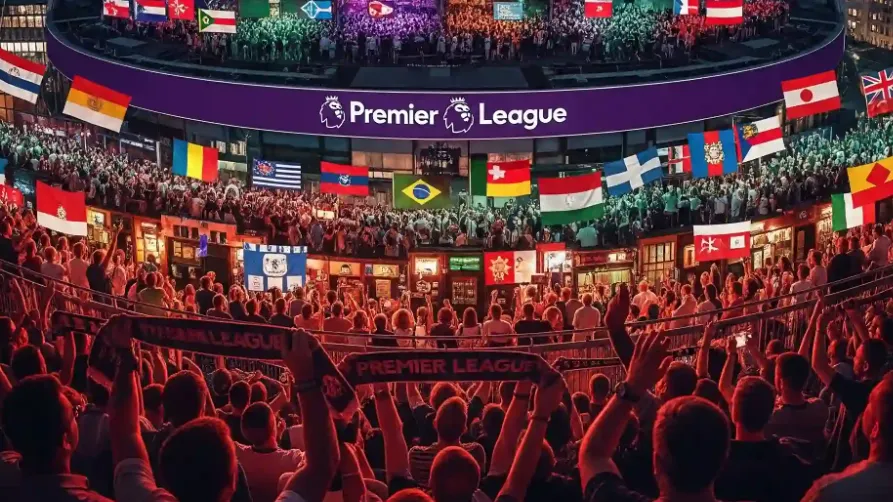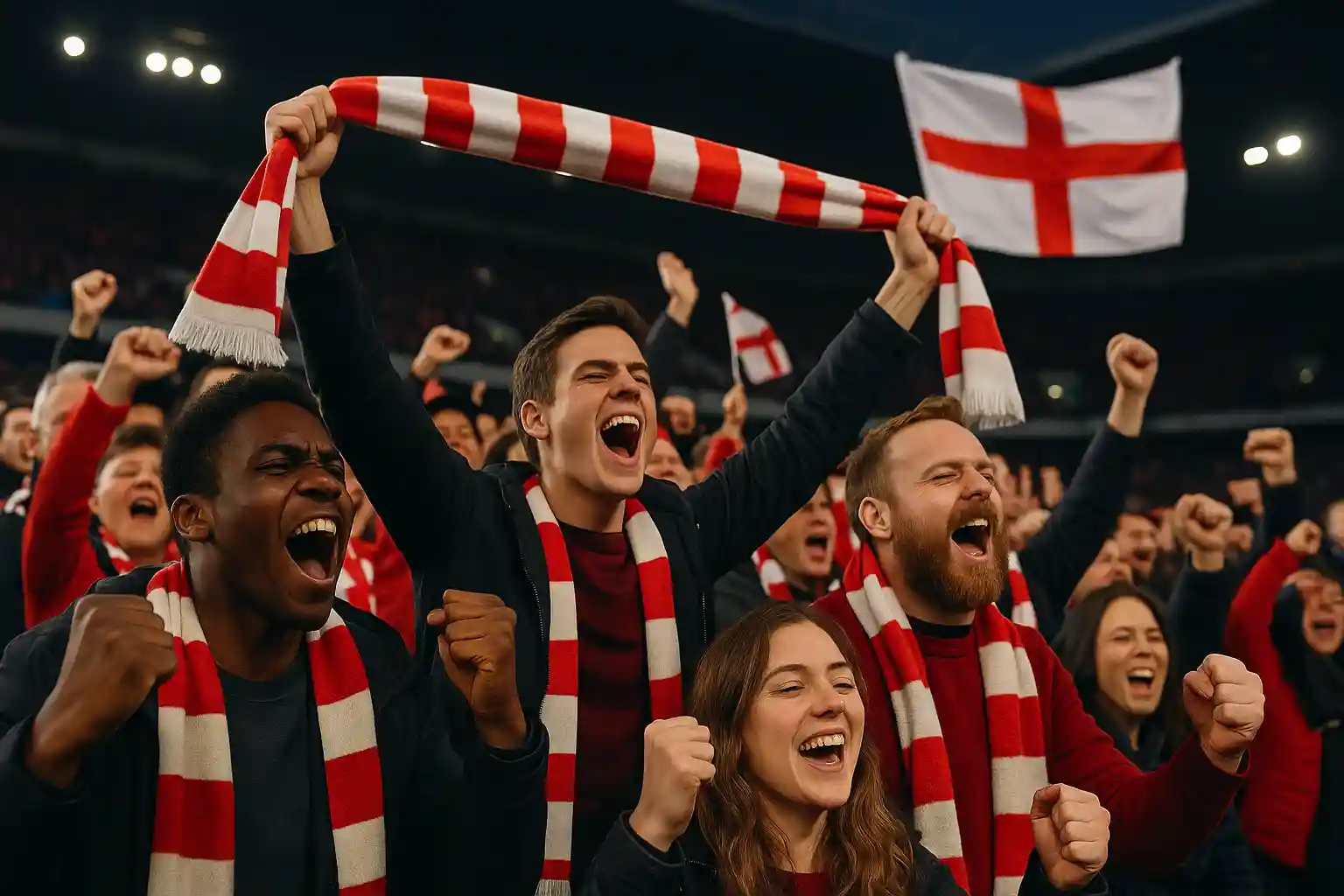
Ever wondered why millions tune in each week to watch Premier League football? It's more than just the star players or the thrilling goals. There is something magical about this league that keeps fans hooked worldwide. From the rapid pace of matches to its unmatched rivalry, the Premier League is unlike any other football tournament.
In this article, we’ll dive into what exactly sets the Premier League apart from the other leagues. We'll explore its vibrant history, fierce rivalries, distinct playing style, and the unique culture that makes English football the most watched league on the planet. Ready to discover why the English Premier League truly is one-of-a-kind? Let’s kick off!

If you've ever sat down to watch a Premier League game, the first thing you'll notice is how fast it moves. From the very first whistle, there's a buzz of energy that doesn't let up. Here's what makes these matches stand out:
Fast pace and physical play: Players run quickly, tackle hard, and fight for every ball.
High pressing: Teams try to win the ball back fast by putting pressure on their opponents.
Quick counter-attacks: Teams move the ball forward rapidly to catch the defense off guard and try to score.
Strong and fearless players: Players use their strength and are not afraid to be physical.
Constant action: Teams like Liverpool or Manchester City show non-stop energy and attacking play.
High fitness demands: Players need to be in top shape to keep up with the game's pace.
Other leagues play differently:
La Liga (Spain):
Serie A (Italy):
So, while La Liga and Serie A have their styles, the EPL stands out for its speed, strength, and never-ending action. I still remember my first Premier League match on TV—West Ham vs. Arsenal—and being glued to the screen, not because of the scoreline, but the raw intensity.
In most leagues, the same one or two teams win every year. In Spain, there's always Barcelona, Real Madrid or Atletico Madrid. In Italy we're used to seeing Juventus, Inter Milan, AC Milan or Napoli are the most frequent winners of the league.
Not in the Premier Leagu e. Here, every team has a legitimate chance. Yes, in recent years Man City have dominated the league, but before Guardiola built his trophy-winning machine every team had equal chances.
Who could forget the 2015/2016 season when Leicester City surprised the world by winning the league.
Smaller clubs regularly beat big clubs, and every game was on a knife-edge. Promoted clubs can surprise and beat even the most established clubs.
This unpredictability is what keeps fans on their toes, knowing there is no fixed outcome. It makes the league so exciting and every game counts.
The Premier League is famous globally. Huge television deals enable clubs to afford star players from across the globe. Players like Erling Haaland, Mohamed Salah, Declan Rice and Bukayo Saka showcase their skill week after week, making matches very exciting.
The EPL has massive financial power. This means clubs can build star-studded squads filled with world-class talent. This money doesn't just go into player wages—it helps clubs build world-class stadiums, training centers, and youth academies.
Superstars attract millions of fans from all over the world every weekend. These players bring glamour, excitement, and drama, which makes the league a top entertainment product, not just a sports competition.
The Premier League is everywhere—on social media, in shirts people buy, and on streaming platforms. That’s why it keeps getting more popular and stays ahead of other leagues.
Every Premier League club has its style, which makes matches even more engaging:
The variation in tactics means that each match offers something different, keeping fans entertained week after week. I’ve found myself watching a low-table match and still being completely hooked. That's because of how differently both teams approach the game.
Premier League stadiums have incredible atmospheres. Fans are vociferous, passionate, and focused on every match. The Premier League has a deep-seated supporter culture. Some stadiums just bring chills when watching a football match there.
When watching a match at Anfield, you just feel the atmosphere. Same goes for iconic stadiums like Old Trafford, Stamford Bridge and Emirates Stadium.
Fans create unique matchday environments that players draw energy from.
Derby games between clubs, like Manchester United v Liverpool or Arsenal v Tottenham, add an extra layer of electricity to the atmosphere.
Supporters aren't merely spectators—they're the show. Their fervour dictates the game, and turning out to the matches an unforgettable experience.

The Premier League also boasts a rich heritage and tradition.
Clubs boast histories of more than a century. Big moments from the past—like Arsenal’s “Invincibles” season, Manchester United’s winning years with Sir Alex Ferguson, and exciting title wins—are a big part of what makes the Premier League special.
Legends like Thierry Henry, Alan Shearer, and Steven Gerrard still inspire players and fans today.
This rich history brings fans of all ages together and adds emotion to every game and every season.
No other league around the globe gets the same media attention that the Premier League gets.
Far-reaching television coverage makes games available to supporters everywhere on the planet.
The Premier League gets extensive coverage and high-quality commentary and analysis from sources like Sky Sports, BT Sport.
Mass availability allows fans worldwide to view every second of action. That makes the Premier League truly international in scope and audience.
Premier League financial strength allows clubs to build world-class facilities, academies, and grounds:
This money helps the league keep improving, making it one of the best and most famous in the world.
So, what makes the Premier League special? It’s the fast games, tough matches, famous players, different styles of play, passionate fans, long history, and non-stop media attention.
Every weekend, millions of people watch because there’s nothing else like it. It’s more than just football—it’s a global event that people everywhere love. And if you’ve ever celebrated a goal in your living room like it was a World Cup final, you already know—you’re part of it too.